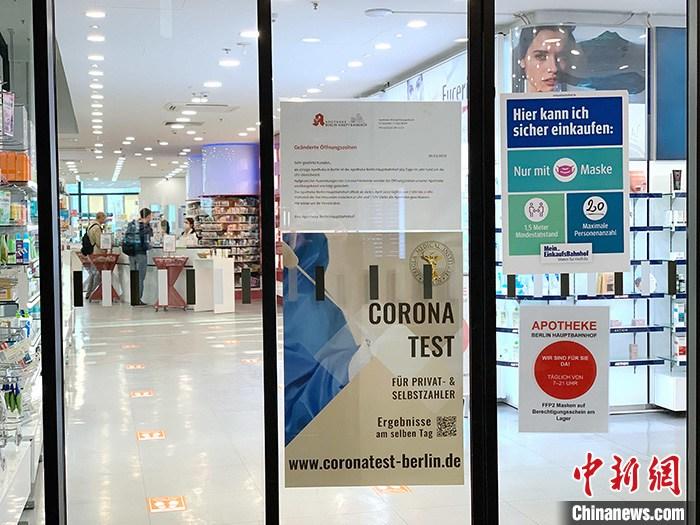Germany extends the "closed city" to March 28: speed up the step-by-step "unblocking" of vaccination and expanded testing
China News Agency, Berlin, March 4 (Reporter Peng Dawei) German Chancellor Angela Merkel announced late on the 3rd local time that the German Federal Government and the states reached a resolution to extend the current nationwide "city closure" measures to March 28.
The resolution provides a step-by-step, limited "unblocking" roadmap for different areas. It also stipulates an "emergency braking" mechanism, that is, when a region's epidemic rebounds severely, the "unblocking" will be cancelled.
The German disease control agency announced on the same day that the number of new confirmed infections with the new crown virus and the number of new deaths were 9,019 and 418 respectively.
According to real-time data from Germany's "Times Online", as of 21:00 local time on the 3rd, a total of 2,473,615 people were diagnosed, 2,273,979 people were cured, and 71,799 people died in Germany.
Currently, Germany has received 6,604,578 doses of vaccine, of which 2,215,504 people have received the second dose.
On March 3, local time, German Chancellor Angela Merkel announced late at night that the German Federal Government and the states reached a resolution to extend the current national "cities lockdown" measures to March 28.
The picture shows people basking in the sun on the banks of the Spree in Berlin.
Photo by China News Agency reporter Peng Dawei
In order to finalize the next step of the epidemic prevention measures, the video conference between Merkel and the governors of the states lasted from the afternoon to late night.
After the meeting, the German Federal Government announced the above-mentioned resolution.
The resolution stated that from March 8th, Germany will allow each family to gather with another family of no more than 5 people.
In areas where the epidemic is well controlled, this restriction can be relaxed to meet with two families (up to 10 people).
In areas where the “accumulated number of new diagnoses per 100,000 people in seven days” is less than 100, retail businesses and museums, galleries, zoos, botanical gardens, memorials and other places can be allowed to reopen under the premise of implementing an appointment system.
When the above-mentioned "unblocking" measures are maintained for 14 days and the epidemic situation has not deteriorated, the next stage can be entered: restaurants will allow outdoor dining, theaters, theaters, concert halls, and indoor sports without physical contact, and those with physical contact Outdoor sports will be allowed to resume.
More leisure activities will be allowed in subsequent phases.
On March 3, local time, German Chancellor Angela Merkel announced late at night that the German Federal Government and the states reached a resolution to extend the current national "cities lockdown" measures to March 28.
The picture shows the pharmacy in Berlin's main train station posting an advertisement offering new crown testing.
Photo by China News Agency reporter Peng Dawei
The resolution also emphasized the goal of doubling the vaccination rate (currently up to 200,000 doses per day).
From the end of March or the beginning of April, German citizens can be vaccinated in clinics where family doctors and specialists are located in addition to going to vaccination centers.
The resolution made the implementation of regular new crown testing as an important basis for restoring normal social life.
Starting in April, German schools, kindergartens and enterprises will begin to implement testing programs.
Ordinary people without symptoms will receive at least one rapid COVID-19 test every week for free.
The German federal government and the states have agreed that they will meet again on March 22 to discuss the follow-up "unblocking" steps.
(Finish)

